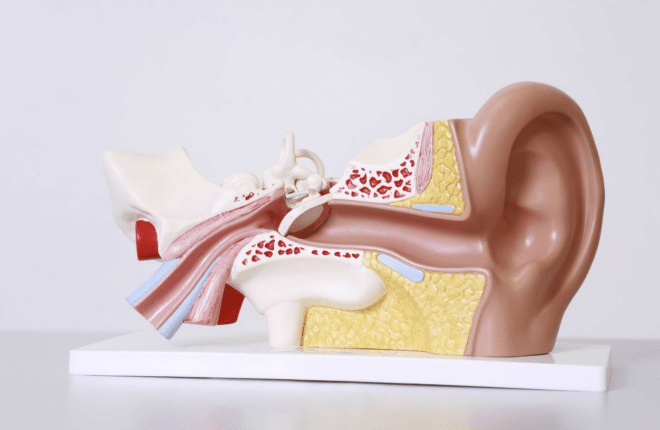Hearing loss is a natural part of aging, and impacts people all over the world. Some people are born with hearing loss or deafness, others lose their hearing due to environmental factors such as damage to the ear. For others hearing loss happens very gradually over many years. Even mild hearing loss can have an impact on your ability to communicate with others. Generally, the bigger the deficit, the larger the challenges.
Fortunately, technology has come a long way. Not only has there been a lot of improvement in the equipment used to evaluate hearing loss, hearing aids are more or less mini computers for your ears designed to stream sound in ways we couldn’t imagine 50 years ago.
Why should you treat hearing loss? Because left untreated, hearing loss can make a big impact on your life.
Quality of Sound Impacts Quality of Life
Hearing loss does not only impact quality of sound, but also quality of life. Reduced hearing quality can be incredibly frustrating, leaving people feeling disconnected and isolated from their loved ones. Left untreated, it can also make them rely on others to understand important conversations, such as at a meeting or a doctor’s office.
Moreover, untreated hearing loss has been linked to cognitive decline, anxiety, depression, high blood pressure, and an overall decline in quality of life.
How Does Hearing Loss Impact Mental Health Over Time?
Conversations may become frustrating for one or both parties when they are continually asked to repeat themselves. Not only will someone with hearing loss tend to withdraw from one-on-one interactions, but from group settings as well. Talking amongst a group can be daunting, whether at a party or at dinner.People with hearing loss may isolate themselves from social scenarios because of the difficulty engaging or following along basic conversations.
Being unable to communicate with others effectively can induce loneliness and impact older people’s mental health. Besides conversing, other things will be challenging to enjoy, such as music, treasured movies, or television shows. Even the voices of loved ones can be hard to take comfort in. A feeling of isolation and disconnection can lead to depression, anxiety, and increased stress.
As hearing loss progresses, individuals lose the ability to identify background noises, making it tough to stay alert during tasks, or be aware of hazards.
Hearing Loss and Relationships
People with hearing loss may also experience weakened relationships because of the struggle to understand the other person. They may feel discouraged when asking others to repeat themselves and become disinterested in social interactions.
Hearing Loss’ Impact on Employment
If not retired, hard-of-hearing adults are more likely to experience unemployment compared to those without hearing loss. Of those with hearing loss who are employed, a higher percentage are in lower employment grades than the general workforce.
Hearing loss can have subtle but important impacts on employment. Reduced hearing could mean tha tan individual misses details in a meeting, is left out of social encounters or has to guess what was said.Whether it is a minor or major mishap, it is never ideal to mishear something in the workplace.
Who Is At Risk For Hearing Loss
A person with normal hearing will have a hearing threshold of 20dB or better in both ears. Prominent causes of hearing loss include:
- Prolonged exposure to loud noise (such as factory workers, musicians, concert-goers)
- Congenital or early-onset childhood hearing loss
- Chronic ear infections
- Aging
- Use of ototoxic drugs, which damage the inner ear
Most people experience noise-induced or age-related hearing loss versus other causes or pathologies.
Benefits of Treating Hearing Loss
Finding sufficient treatment for hearing loss is essential. If treatment is avoided, then issues will continue to progress.
Treatment for the most common types of hearing loss is hearing aids. Having hearing aids will make it easier to keep conversations and connect with colleagues or loved ones. They could help rebuild confidence when speaking and in social situations. The use of hearing aids can reduce mental fatigue, decrease depression and social isolation, improve memory, attention, and improve communication skills.
Hearing aids are a technologically advanced treatment for hearing loss. Hearing aids are devices which digitally process sound to the appropriate amplification level, and are available in various formats and styles. Audiologists or other hearing care providers can outfit the patient with the proper device for their hearing needs, lifestyle, and budget. Private health insurance providers may not cover their full cost. It is recommended that insurance be consulted on coverage and cost before deciding on a device.
What Can I Do When Speaking with Someone with Hearing Loss?
Conversing with someone with hearing loss can be frustrating, but it can be even more daunting for the individual who can’t hear you. First, ask how you can help them, especially in a group setting. Remain patient and compassionate
Try to refrain from covering your mouth or turning/walking away while talking because a person with hearing loss often uses reading lips and facial expressions to follow a conversation.
Speak at a decent speed, at a slower pace, but not too slow. Make eye contact, so it appears that you are present in the conversation and so they can see your face clearly. If possible, find a quiet place with little background noise so the recipient with hearing loss can understand you better. Lastly, if you are in a group setting, make them feel included in the conversation by making occasional eye contact.
How To Check Your Hearing
To find a hearing care professional near you, use Darr’s clinic locator tool. Using it, you’ll be able to browse the practices near you, and set up an appointment to get seen.



